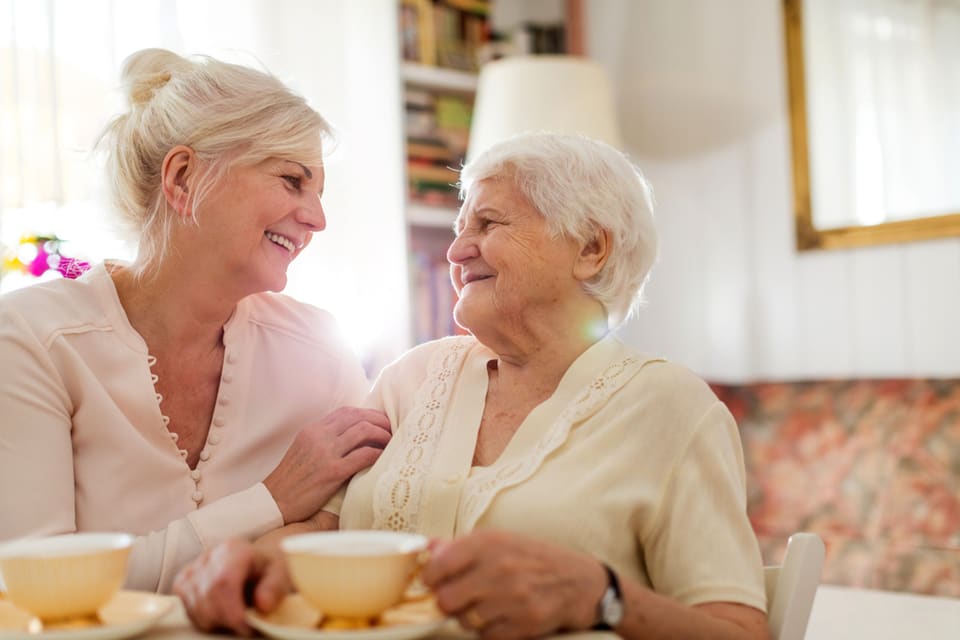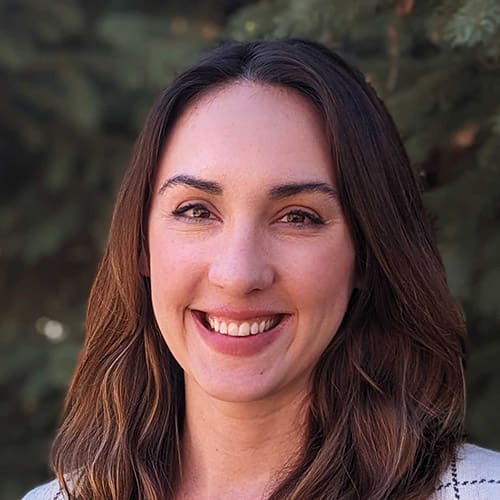
The Top 10 Senior Caregiver Duties You May Encounter

Most caregivers don’t feel prepared to take on the challenges of caring for a senior. Understanding the most common senior caregiver duties can help you prepare. Caregiver duties depend on the health and needs of the person needing care. The first thing to do is determine their needs and your abilities. Some of the most common caregiver duties include physical care, cleaning, grocery shopping, cooking, managing medications, and helping with medical appointments. Learn more about the expectations you might face as a senior caregiver.
Let our care assessment guide you
Our free tool provides options, advice, and next steps based on your unique situation.
What does a caregiver do?
According to A Place for Mom’s 2023 State of Caregiving Survey, 76% of senior caregivers said they were not fully prepared to perform all of their caregiving duties. Learning about the common duties of a caregiver beforehand can help. While your senior caregiving duties may vary each day, some basic tasks remain the same when caring for an aging parent or senior loved one.
If you need more help caring for your aging loved one, contact one of A Place for Mom’s Senior Living Advisors today. These advisors can help you find affordable home care options to ensure your senior gets the quality of care they deserve, and they can alleviate your caretaker burden.
In taking on the role of caregiver for an elderly loved one, you can expect to do the following:
1. Schedule medical appointments
Helping a senior loved one schedule and attend their medical appointments, like colonoscopies or other preventative diagnostic screenings, is key to keeping them healthy. Your senior may not be able to remember to schedule these appointments themselves, so it’s a good idea to review their care plan regularly and contact their health care providers often. You don’t have to be a senior’s power of attorney to help them schedule medical appointments.
2. Prepare and oversee care plan
Preparing a care plan that addresses your senior loved one’s care needs and goals can be helpful when you begin your caregiving journey. A plan can help you determine how many daily hours of care your loved one will require and whether you need additional help to ensure their health and safety.
3. Assist with bathing, eating, and grooming
Memory and mobility issues can make activities of daily living (ADLs) — such as eating, bathing, grooming, and toileting — difficult to perform without a caregiver. Check in often and pay attention to specific signs and changes to determine if your loved one needs extra help.
4. Provide companionship
One of the most essential but sometimes overlooked parts of senior caregiving is companionship. Feelings of loneliness in older adults can lead to serious health consequences, including depression. When you care for an aging loved one, you’re creating opportunities to strengthen your bond and connection.
5. Manage household chores
As your loved one ages, maintaining a home can become increasingly difficult. Older adults may need help with vacuuming, doing the dishes, or taking out the garbage. If your loved one lives in a house, yard work like snow shoveling and daily maintenance may be too much for them to handle — even with your help. Consider whether your loved one would benefit from the convenience and support of a senior living community.
6. Monitor medication
Older adults often take several prescription medications to treat chronic conditions. Your loved one may need help keeping track of their medication list, understanding drug interactions, and taking prescribed dosages at the right time. You can help lower your loved one’s risk of medication mix-ups and associated health problems by monitoring their medications and creating reminder systems.

Let our care assessment guide you
Our free tool provides options, advice, and next steps based on your unique situation.
7. Prepare nutritious meals
Food preparation can become increasingly difficult with age. If your loved one lives alone, they may lack the energy or motivation to cook. In some cases, memory and balance issues may make cooking unsafe. As a caregiver, you can help with shopping for groceries, preparing meals, or finding alternatives to make sure your loved one gets proper nutrition.
8. Discuss health changes with doctor
As circumstances surrounding you and your loved one inevitably change, the care plan will need to be adjusted. Review your caregiver duties list regularly to determine what’s working, what’s not, and what needs to be adapted. Keep in close contact with your loved one’s doctor and other health professionals to discuss any changes.
9. Help prevent falls
Falls are a major risk to the health of older adults. Your loved one may have difficulty moving or transferring — from their bed in the morning to a chair in the afternoon, for instance. As a caregiver, you can take steps to help prevent falls and help your loved one stay safe and comfortable.
10. Provide transportation
As your loved one ages, public transportation or driving may no longer be safe options. You might need to look for senior transportation alternatives to get your loved one to doctor’s appointments and other activities.
What is a caregiver?
A caregiver is someone who cares for the health and well-being of a person who needs help with daily tasks and activities. Your aging loved one may need a caregiver due to an injury, an illness, limited mobility, memory issues, or chronic conditions that make everyday tasks more challenging. Caregiver statistics show that it’s not uncommon among the U.S. population for adults to provide unpaid care.
According to A Place for Mom’s 2023 State of Caregiving Survey, there are over 41 million caregivers in the United States, and 82% feel physically, emotionally, and mentally drained because of their caregiving duties.
Depending on the level of support provided, long-term caregiving can take a toll on the caregiver’s physical and emotional health. It’s essential to continue self-care as a caregiver to maintain your caregiving abilities. Consider your loved one’s condition and your health and skills to determine whether in-home care is appropriate or if more specialized care is needed. Consider joining a caregiver support group tailored to your unique caregiving situation, like a dementia forum if you care for a senior with dementia or another online group. If you have a job on top of caregiving, make sure to take advantage of all employee benefits for caregivers that you may not know about.
If you believe your loved one needs more care than you’re prepared to give, consider reaching out to your local Senior Living Advisor, Your advisor can connect you with senior living options that fit your needs and your budget. You can also compare local senior living facilities on A Place for Mom’s community search bar. This service comes at no cost to you or your family.

Talk with a Senior Living Advisor
Our advisors help 300,000 families each year find the right senior care for their loved ones.
What does a caregiver do?
Senior living options in all states
The information contained on this page is for informational purposes only and is not intended to constitute medical, legal or financial advice or create a professional relationship between A Place for Mom and the reader. Always seek the advice of your health care provider, attorney or financial advisor with respect to any particular matter, and do not act or refrain from acting on the basis of anything you have read on this site. Links to third-party websites are only for the convenience of the reader; A Place for Mom does not endorse the contents of the third-party sites.
Make the best senior care decision
Make the best senior care decision